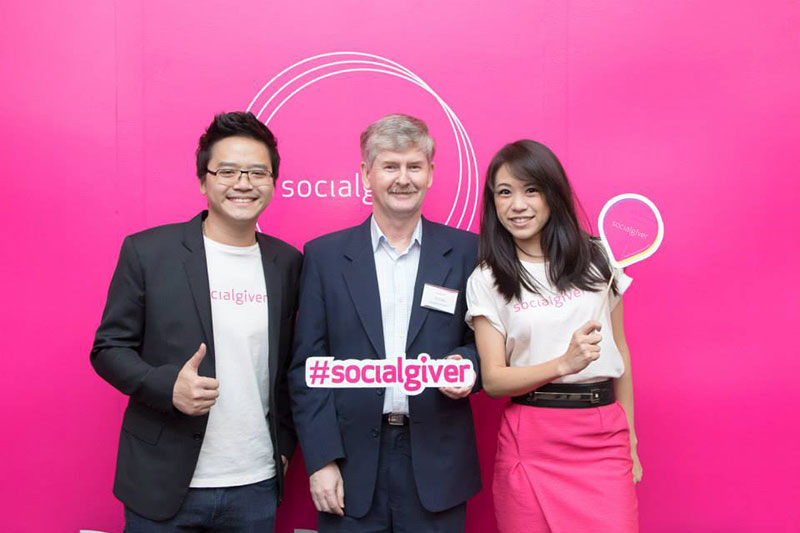The award-winning social enterprise Socialgiver is revolutionising fundraising by tapping into consumer spending power to bring change across Thailand, helping over 45,000 people so far, and counting…
Having worked in the corporate world managing systems and supply chains for over 10 years, the innovative social entrepreneur Aliza Napartivaumnuay (Alice), 34, witnessed firsthand the carbon footprint and environmental impact businesses were generating all over Thailand. Determined to find a solution that reversed this balance, she came up with the idea of asking companies that had products and services left unused to pledge their surplus to charities who could, in turn, sell those services to raise funds. And so, in 2015, alongside her longtime friend Arch Wongchindawest, she founded Socialgiver, an online platform that’s a hybrid between e-commerce, donation and cash funding. Here, she talks us through how creating sustainable change holds the key to providing a secure future for those who need it.

Alice’s philosophy on how to create sustainable change started while she was in the retail business and was rooted in the mission to find a win-win solution for everyone involved. It’s a way of thinking she was used to – having implemented new systems to benefits regional suppliers in her previous life in retail. “A lot of people think it’s a very big change for me, but there is a similar essence in designing win-win solutions for people that work for us to benefit the ecosystem we are building,” she explains. For her, the change was moving from being a volunteer in her own free time to actually producing something that builds a better path for financial stability in the third sector and is more scalable.
Over the years, Socialgiver’s model has evolved from one that used gift cards or the donation of a table at an event in return for revenue to a system that partners with over 200 leading brands. Users shop for hotel stays, activities, concert tickets, movie tickets, airline tickets and restaurant gift vouchers that have been supplied thanks to a surplus on the brands’ front, all whilst knowing that 70 per cent of their purchase will be given to charities of their choice, with 30 per cent covering operating costs. This way, brands can utilise their surplus products or services for donations and charities have an alternative channel for receiving donations. As Alice puts it, “There are a lot of donation websites out there, but we want to have a sustainable model and we want people to be engaged. It’s more than just volunteering for an activity.” So far, they have helped improve more than 45,000 lives in Thailand.

Socialgiver’s online platform is designed to be as transparent as possible, so users can, in turn, feel as good as possible about the process and know exactly where the money is going. “We want to create new standards for the social sector and operate as transparently as possible, and to share that with people who want to support us. We want brands to support projects that are sustainable rather than just doing Corporate Social Responsibility the old way – one that is more PR based,” says Alice. It’s a sense of transparency that taps into new consumer trends. “With the younger generation, they are starting to realise that they are facing an avalanche of problems within their generation. They are becoming more socially conscious about their spending, or who they are spending it with. I think this is something that brands should be aware of and realise that it’s not just about the price anymore, but what you stand for.”
The concept of Social enterprise in Thailand is still in its early days, but with players like Socialgiver on the scene, there is change afoot. “It’s a healthy environment right now, with social enterprises all supporting each other. I think it will evolve over time and we hope to be able to get more people into the space, and at the same time work with larger companies to create social change. It’s a matter of connecting everybody. Sometimes, it is a shame to see so many people working on the same issue but doing it in different places, meaning it becomes fragmented.” Looking ahead, Socialgiver hopes to engage with the next generation of leaders by advocating in business schools all over Thailand to create a mindset and attitude that states: It’s no longer only about making money but, more importantly, about making a difference. For them, the solution lies in integrating the customer experience with the giving experience. A smart idea, all around.
x
Related Articles
Cookie Smiles: The HK Social Enterprise Serving Up Cookies With A Cause
Powerpants by Bham: Australian Social Enterprise Takes a Stand Against Gender Violence
Meet the Female Founder Behind Social Enterprise App Pay-A-Vegan




